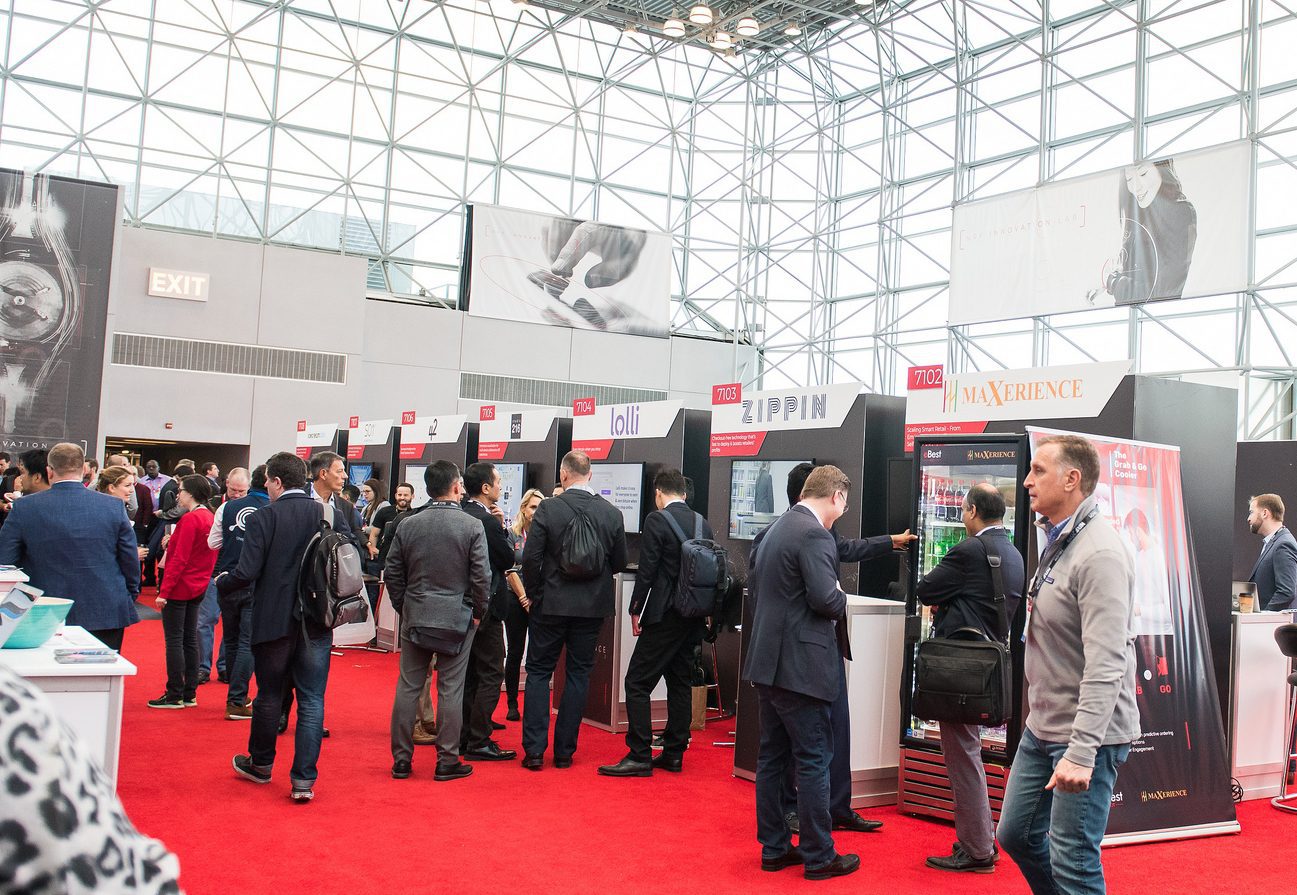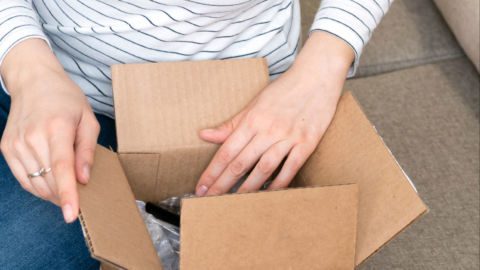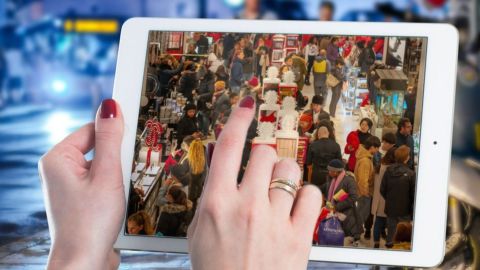Photo credit: NRF
For the third year the NRF Big Show put a spotlight on its top innovators, giving attendees tools and ideas for solving consumer needs in 2019 and beyond. The eclectic, hand-picked group of 50+ startups — broken out into customer convenience and customer experience sections — showcased new ways for retailers to manage some of their most pressing concerns, including:
- Removing friction from checkout;
- Providing targeted content to shoppers using facial recognition;
- Offering personalized assistance, whether in-store or online; and
- Adding transparency to last mile delivery.
Autonomous, Cart-Based Self-Checkout Arrives
With the hype surrounding Amazon Go during the past year, other companies are scrambling to deliver frictionless self-checkout. One such company, Zippin, has already opened a concept convenience store in San Francisco to showcase its AI- and computer vision-driven software platform. The company demonstrated how shoppers scan a QR code to gain entry to the shop, while cameras and smart shelf sensors track which products are picked up or put back, and when. Combining all this information allows Zippin to place the right items in each shopper’s virtual cart. Upon leaving the store, customers receive an emailed receipt detailing their charges.
Caper focused on improving self-checkout through a smart cart. The cart is equipped with a scanner/POS attached at the top, so that shoppers can scan an item, put it in the cart and pay directly, without going through a checkout line. The technology even provides shoppers with a store map/item locator and makes product recommendations, and it already has been tested in New York City-area grocers such as Key Food and Met Fresh supermarkets.
Smart Shelving Marries Facial Recognition, Computer Vision To Foster ‘Frictionless Shopping’
Measured just by surface area, AWM Smart Shelf had one of the biggest presences in the Innovation Lab. The solution provider’s contribution to the “frictionless shopping” concept combines cameras, facial recognition, LED Smart Shelf technology and computer vision software. The facial recognition technology is designed to identify multiple physical aspects of a customer, including age, gender and ethnicity, while the Smart Shelf can leverage this real-time data to target dynamic pricing, discounts and content to shoppers. The Smart Shelf is already live in select Walmart and Shop Rite locations.
When a shopper selects a product on the shelf, the computer vision software recognizes it and can send information to the shoppers’ cart via the AWM app. From there, shoppers can choose to pay via the mobile app.
Getting Personal With The Shopper At All Touch Points
Retailers understand that they need to be more personal with consumers, and providers are developing solutions to give associates the information they need to be effective — regardless of whether the shopper is in a store or online.
Mystore-E showcased its recently launched Tore-E, an AI-based personal assistant for stores that is designed to provide real-time communication and sales data around in-store product performance. The platform communicates directly with store associates, matching them to the best (and most likely to be purchased) products based on their overall relevancy. There is also a customer-facing side to the platform that supports digital displays positioned throughout a store. James Allen and Value City Furniture are leveraging the technology in their stores.
Hero demonstrated its own take on personal engagement with a solution designed to connect the online shopper with a live associate. When shoppers go online, either on their computer or their mobile device, they can connect with a personal stylist via chat to get product recommendations and expert advice. The personal shopper can even take photos and videos of products live in the store to give shoppers greater context about what they would be buying. In-store associates can input customer details into the Hero app so that they can proactively text the consumer when relevant new lines become available.
As Online Fulfillment Demands Grow, Last Mile Platforms Get More Sophisticated
The success stories of Walmart and Kroger in online grocery and the growth of Target’s 2018 holiday fulfillment were two hot items that came out of the NRF Big Show. They spotlight the need for all retailers to improve their last mile capabilities.
Glympse is a location-sharing technology designed with the customer in mind, enabling online grocery shoppers waiting at home to track their orders in real time. Grocers using the mobile app have visibility into the proximity of the driver, so they can ensure curbside grocery orders are ready at the right time. Shoppers also can access the app to learn service appointment details and engage with the retailer, from the initial confirmation to final delivery.
The Onfleet software platform can optimize delivery routes and even dispatch and track drivers in real time. Visually, retailers get a birds-eye view of the location of each driver, local customer and pickup/delivery task. Through its web dashboard, retailers can assign shipments to specific drivers based on convenience and other factors like nearest location, and update them with real-time maps. The platform also leverages predictive ETAs designed to enable retailers to stay proactive in delivering accurate arrival times. Total Wine & More and Gap are partners with Onfleet.
For complete Big Show coverage, visit the RTP NRF19 news hub.













3 Ways Livestreaming is Shaking Up the Retail Marketing Playbook